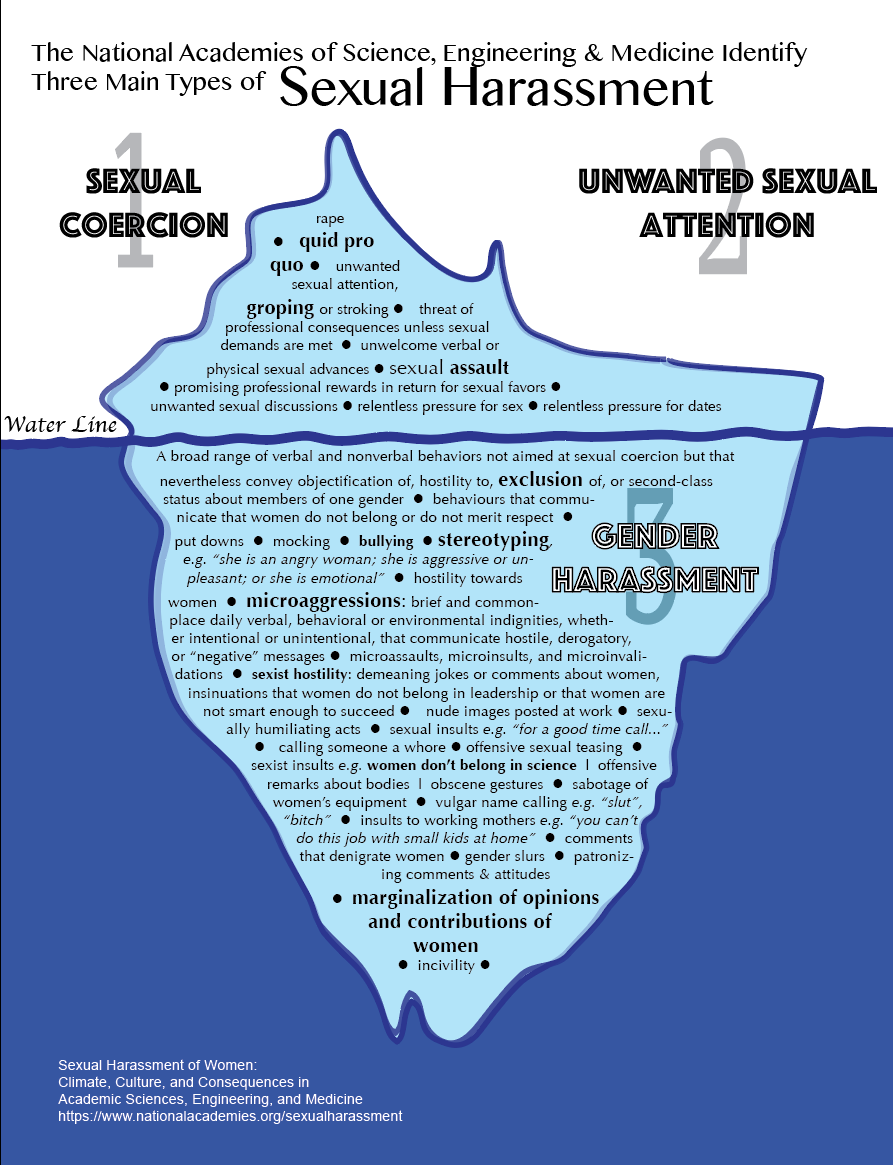Professor Fleming’s presentation at the upcoming Biophysical Society meeting, right here in Baltimore!
Category Archives: Unconscious Bias
Write to the Times
Only about 30% of the letters to the editor in the NY Times are from women, and the Times aims to change that by February 2020. 
In a letter published on Jan 31, 2019, Kimberly Probolus, American Studies PhD student at George Washington University, called attention to this disparity, writing that “submitting a letter to the editor says that in a society that refuses to acknowledge your full humanity, you insist on it. It is asserting that your ideas and words deserve an audience in a world that has historically devalued them. It is accepting that you most likely will never receive external validation for your efforts save for an automated email thanking you for your letter.”
An excerpt from the editors’ reply, which agreed with Probolus:
As for our letters page, we make our selections regardless of gender. But we are sensitive to gender imbalance, and as editors of a space dedicated to readers’ voices, we are determined to have it reflect more closely society as a whole. Going forward, we’re committing ourselves to work toward a goal of parity on a weekly basis. We’ll report back on our progress in February 2020.
But we need your help. So we want to urge women — and anyone else who feels underrepresented — to write in (here is a guide).
#HandsOffIX
Title IX comments due next Tuesday! Please take 10 minutes, use one of the helpful links below, and submit your comments.
We’ve updated our file cabinet
 Hoping we might learn something from Dartmouth? Curious about critiques of student evaluations of teaching? Perhaps you want to read the NAS report for yourself, or JHU Vision 2020, the Columbia equity report on tenure-line faculty, or the American Physical Society LGBTQ+ Climate Report. . . . The Women Faculty Forum File Cabinet is always there for you. We just freshened it up, in fact.
Hoping we might learn something from Dartmouth? Curious about critiques of student evaluations of teaching? Perhaps you want to read the NAS report for yourself, or JHU Vision 2020, the Columbia equity report on tenure-line faculty, or the American Physical Society LGBTQ+ Climate Report. . . . The Women Faculty Forum File Cabinet is always there for you. We just freshened it up, in fact.
Come browse anytime, and please email us suggestions for additions at aembrodsky@jhu.edu.
These stories are for everyone
 Last Wednesday, the Women Faculty Forum hosted a faculty coffee hour to discuss graduate student advising. It was a terrific discussion; over the course of two hours, 25 faculty members and administrative leaders (from KSAS, WSE, and the Provost’s office) joined in. Gratitude, again, to the KSAS deans for sponsoring the event.
Last Wednesday, the Women Faculty Forum hosted a faculty coffee hour to discuss graduate student advising. It was a terrific discussion; over the course of two hours, 25 faculty members and administrative leaders (from KSAS, WSE, and the Provost’s office) joined in. Gratitude, again, to the KSAS deans for sponsoring the event.
Two days later, we began to see signs around campus expressing concern about graduate student safety as well as the OIE complaint process.
From every angle, this is a painful situation.
However, we are not without means to address it. On the contrary: the Hopkins community has the tools and resources to rethink how we approach gender equity, from cultural shifts in our everyday interactions all the way to Title IX cases.
At the 2018 Frankfurt Book Fair this past October, Chimamanda Ngozi Adichie (MA in Writing Sems, 2004) gave the keynote. A brief excerpt:
All over the world today, women are speaking up, but their stories are still not really heard. It is time for us to pay more than lip service to the fact that women’s stories are for everyone, not just women. We know from studies that women read books by men and women, but men read books by men. It is time for men to read women.
Hence our title, “These stories are for everyone.” Only courageous talk and earnest listening–followed by proactive, systemic change enacted by men and all other genders–will dislodge the cultural norms that allow nearly 3/5 of women scientists to be sexually harassed and allow gender harassment to permeate our culture, on campus and off.
In the spirit, then, of facilitating conversation and action toward a more diverse, inclusive academic culture, we are using this post to remind ourselves and our colleagues of the work that’s already been done. Good, practical ideas for faculty-student interactions or institutional discrimination processes are no secret. This should be our starting point for improving gender equity at Homewood.
So, next steps:
1. Starting now, establish norms that support a diverse, inclusive culture for graduate students and postdocs
- Mentoring Grad Students: Advising Statements (Chronicle 2018)
- Kathleen E. Grogan, “How the entire scientific community can confront gender bias in the workplace” (Nature Ecology & Evolution 2018)
- Leonard Cassuto, “On the Value of Dissertation Writing Groups” (Chronicle 2018)
- Allison Antes, “First law of leadership: be human first, scientist second” (Nature 2018)
- Leah H. Somerville, “What Can We Learn from Dartmouth?” (Science 2018)
- K.A. Amienne, “Abusers and Enablers in Faculty Culture” (Chronicle 2017)
- Suggestions for how to “diffuse the hierarchical and dependent relationship between trainees and faculty” at JHU (2018)
NAS RECOMMENDATION 5: Diffuse the hierarchical and dependent relationship between trainees and faculty.
Academic institutions should consider power-diffusion mechanisms (i.e., mentoring networks or committee-based advising and departmental funding rather than funding only from a principal investigator) to reduce the risk of sexual harassment.
RECOMMENDATION 9: Incentivize change.
- Academic institutions should work to apply for awards from the emerging STEM Equity Achievement (SEA Change) program.3 Federal agencies and private foundations should encourage and support academic institutions working to achieve SEA Change awards.
- Accreditation bodies should consider efforts to create diverse, inclusive, and respectful environments when evaluating institutions or departments.
- Federal agencies should incentivize efforts to reduce sexual harassment in academia by requiring evaluations of the research environment, funding research and evaluation of training for students and faculty (including bystander intervention), supporting the development and evaluation of leadership training for faculty, and funding research on effective policies and procedures.
2. Balance transparency, privacy, and efficiency in discrimination cases
- Emma Pettit, “In Sexual Misconduct Cases, Colleges Weigh Privacy Against Transparency” (Chronicle 2016)
- Diva Parekh, “On Their Own: Eight survivors of sexual violence share their stories and how the University handled their cases” (JHU News-Letter 2018)
-
Marina N. Rosenthal, Alec M. Smidt, and Jennifer J. Freyd, “Still Second Class: Sexual Harassment of Graduate Students” (Psychology of Women Quarterly 2017)
NAS RECOMMENDATION 4: Improve transparency and accountability.
- Academic institutions need to develop—and readily share—clear, accessible, and consistent policies on sexual harassment and standards of behavior. They should include a range of clearly stated, appropriate, and escalating disciplinary consequences for perpetrators found to have violated sexual harassment policy and/or law. The disciplinary actions taken should correspond to the severity and frequency of the harassment. The disciplinary actions should not be something that is often considered a benefit for faculty, such as a reduction in teaching load or time away from campus service responsibilities. Decisions regarding disciplinary actions, if indicated or required, should be made in a fair and timely way following an investigative process that is fair to all sides.2
- Academic institutions should be as transparent as possible about how they are handling reports of sexual harassment. This requires balancing issues of confidentiality with issues of transparency. Annual reports, that provide information on (1) how many and what type of policy violations have been reported (both informally and formally), (2) how many reports are currently under investigation, and (3) how many have been adjudicated, along with general descriptions of any disciplinary actions taken, should be shared with the entire academic community: students, trainees, faculty, administrators, staff, alumni, and funders. At the very least, the results of the investigation and any disciplinary action should be shared with the target(s) and/or the person(s) who reported the behavior.
- Academic institutions should be accountable for the climate within their organization. In particular, they should utilize climate surveys to further investigate and address systemic sexual harassment, particularly when surveys indicate specific schools or facilities have high rates of harassment or chronically fail to reduce rates of sexual harassment
- Academic institutions should consider sexual harassment equally important as research misconduct in terms of its effect on the integrity of
research. They should increase collaboration among offices that oversee the integrity of research (i.e., those that cover ethics, research misconduct, diversity, and harassment issues); centralize resources, information, and expertise; provide more resources for handling complaints and working with targets; and implement sanctions on researchers found guilty of sexual harassment.
3. Take a Comprehensive Approach to Prevention
- Yale University, “Preventing and Responding to Sexual Harassment: Building a Climate of Safety and Respect at Yale”
- Jessica Sales and Kathleen Krause, “Schools must include faculty and staff in sexual violence prevention efforts” (Journal of American College Health 2017)
-
Carrie A. Moylan and McKenzie Javorka, “Widening the Lens: An Ecological Review of Campus Sexual Assault” (Trauma, Violence, and Abuse 2018)
NAS RECOMMENDATION 15: Make the entire academic community responsible for reducing and preventing sexual harassment.
All members of our nation’s college campuses—students, trainees, faculty, staff, and administrators—as well as members of research and training sites should assume responsibility for promoting civil and respectful education, training, and work environments, and stepping up and confronting those whose behaviors and actions create sexually harassing environments.
4. Create opportunities to discuss gender harassment
- How a Department Took on the Next Frontier in the #MeToo Movement” (Chronicle 2018)
- What It’s Like to Be a Woman in the Academy (Chronicle 2018; short essays, each a potential discussion topic or “case study”)
5. Offer institutional support for victims, separate from investigation
NAS RECOMMENDATION 6: Provide support for the target.
Academic institutions should convey that reporting sexual harassment is an honorable and courageous action. Regardless of a target filing a formal report, academic institutions should provide means of accessing support services (social services, health care, legal, career/professional). They should provide alternative and less formal means of recording information about the experience and reporting the experience if the target is not comfortable filing a formal report. Academic institutions should develop approaches to prevent the target from experiencing or fearing retaliation in academic settings.
Finally, many thanks to Yale Faculty Forum for their impressive searchable bibliography of “over 640 references of recent research about women in higher education, including the following topics: gender bias in the academy, tenure rates and challenges, balancing work and family, diversity, mentoring, hiring practices, women in the sciences, gender studies, institutional reports, and experiences of junior faculty.” Check it out!